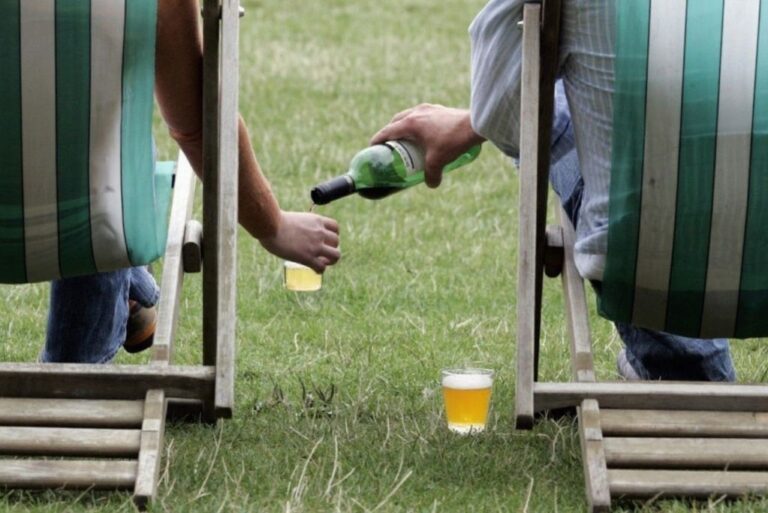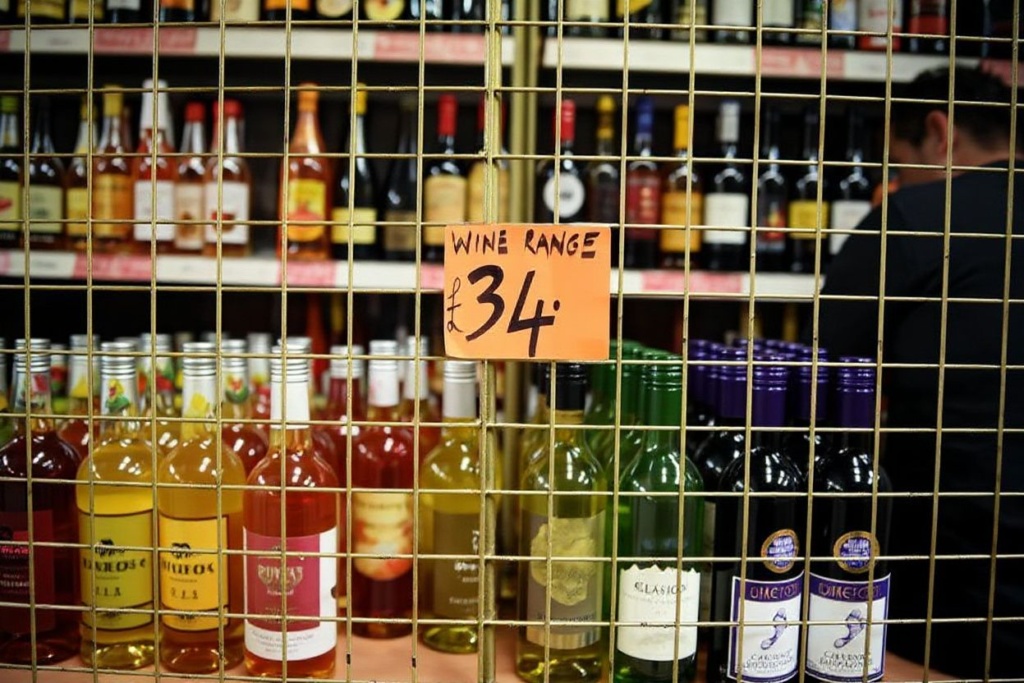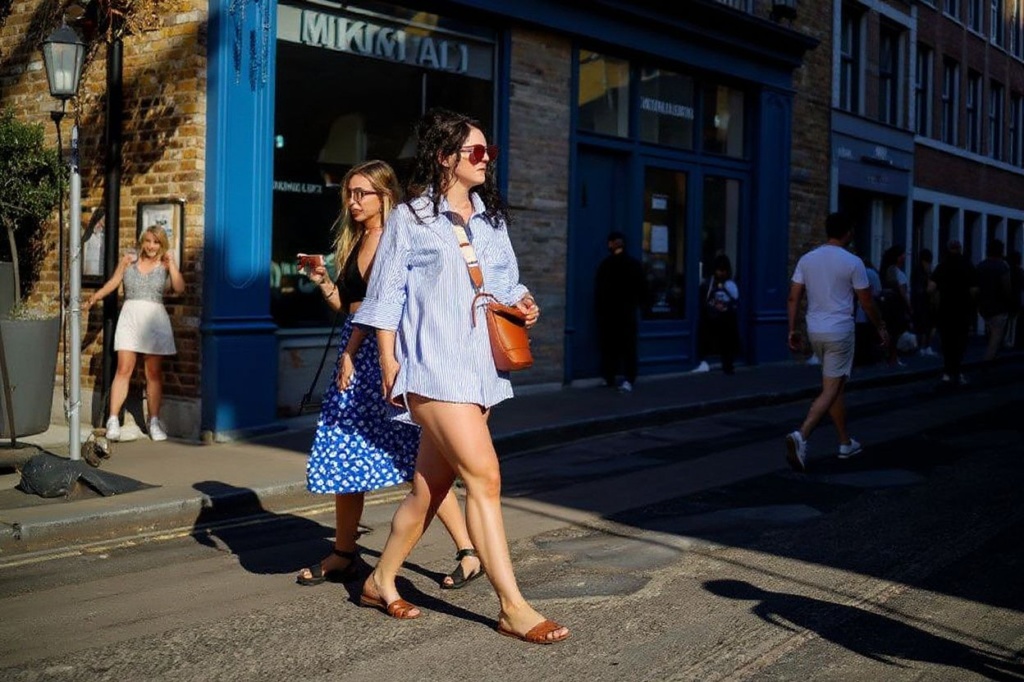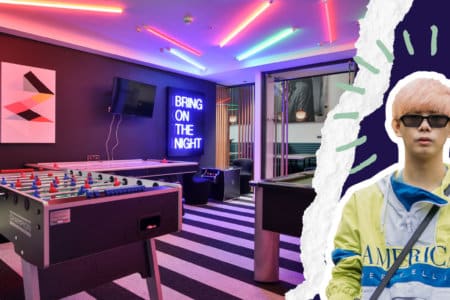
The UK pubs and the drinking that happens there are infamous.
From loud brawls portrayed on television to the stereotype of daily trips to the local bar, the international view of British drinking culture is a mixed bag.
After a day at the office, working adults in the UK would head to their local pub for a pint or two to unwind. Or at least that’s what they did in the movies.
I thought it must not be so different than it was in Malaysia: many adults come home from a difficult day to fix themselves a gin and tonic or whisky on the rocks.
It’s the same, right?
Drinking in the UK, as a student at least, turned out to be different.
Before flying off to the University of Glasgow, I was no stranger to occasional sugar-laden cocktails and bottomless tostada chips.
It made me feel grown up, clinking glasses and casually sipping my beverage throughout the night.
Little did I know that I was not prepared for the first week of social drinking at uni.
I was surprised by most events during Freshers’ Week centred around alcohol or how events in the day happened in a pub.
I remember how a few old churches were converted into restaurants and pubs with dramatic or charming architecture.
Most of these activities help build friendships — great for someone who’s never been to the UK! — some of which I’ll soon discover will last my entire university journey.
 Heading to UK pubs is a great way to explore local beverages and food. Source: Daniel Leal
Heading to UK pubs is a great way to explore local beverages and food. Source: Daniel Leal
Is there a drinking culture in the UK?
Many in the UK drink for the sole goal of getting drunk. Even students from other European countries who are used to a casual beer or wine with their meal are surprised at the intense binge drinking.
From weekend benders to house parties and pub crawls, a lot of social events meant for students to meet new people feature at least a few beers.
It could be in direct ways such as playing drinking games (Kings Cup/Ring of Fire and dirty pints come to mind) at a house party or more subtle events like a society board games night held at a local pub.
For me, the most memorable was the Glasgow Cecilian Society’s (the musical theatre society) video game-themed pub crawl challenge.
Teams crafted creative costumes and headed out to complete puzzles in different bars, downing many pints of beer along the way.
I was surprised that there were people on our team who did not drink, but they joined in on the fun in costume with juice in hand.
British drinking habits over the last few years have certainly changed. A 2017 survey found that young people aged 16 to 24 years in the UK are less likely to drink than any other age group.
More recently, University College London did a study that found two-fifths (40.1%) of heavy drinkers reported decreasing their alcohol intake.
Nine in 10 young adults (aged 18 to 29) who were once heavy hitters have decreased their drinking. To keep up with this change universities have found ways to adapt.
St Andrews University launched an alcohol-free accommodation block, and in 2017 more than 400 students applied (which was well above the 132 rooms available).
Many other universities also provide teetotalling (practice of not drinking alcohol) friendly housing, including:
- University of West of England
- Queen Margaret University
- University of Aberdeen
- Newcastle University
There have been changes in how events are run for students too. “
We know that many of our students drink less regularly than they did five to 10 years ago … We have reduced our club nights from twice to just once a week,” says Osaro Otobo, two-term president of Hull University union.
At the pub, however, it can be hard for a foreigner or someone new to drinking (and without parents around to police) to find out how much is too much.
My key tip? Go at your own pace. I’ll go more into this below.
 UK pubs are infamous rowdy behaviour and over-indulging. Source: Chris J Ratcliffe
UK pubs are infamous rowdy behaviour and over-indulging. Source: Chris J Ratcliffe
Here are a few helpful tips to navigate British drinking culture while at university:
Common terms everyone should know
I remember the first time someone said “I’m steaming” while on a night out. Confused, I looked at their arms, thinking water vapour or condensation would be floating off their skin.
It turns out “steaming” is just one of the many terms coined to replace “drunk” in the UK.
No one can accuse the British of being unimaginative as some substitutes for “drunk” are so colourful as to feature faeces or the bottoms of rodents.
It can be a little tough to get the hang of this wide vocabulary associated with drinking, even if English is your first language. Here are a few common ones:
- Sloshed
- Sozzled
- Off their head
- Tying one on
- Bevvied
- Hammered
- Smashed
- Plastered
While the above is nowhere near a complete list of replacements, it can be fun to discover new terms native to different parts of the UK.
Why not turn it into a fun game or think of it as a learning opportunity?
What if I don’t drink?
You don’t need alcohol to have a good time or go to a pub, bar or club. No one will judge you for this. You’ll still be welcomed. Remember, your alcohol intake is your business, not anyone else’s.
Plus, you can keep an eye on your friends who have had too much.
Just because you are going to a venue that centres booze, like a pub or club, you can just have water, juice or your favourite fizzy drink.
Low ABV (alcohol by volume) or zero-proof (non-alcoholic) drinks are also an option if you want to have a drink or two without the intense effect of the spirit.
If you would rather not be near booze or people drinking, check out alcohol-free events at your university.
For instance, Leeds University Union has specifically planned events like fairs, film screenings, craft sessions and city explorations that do not include alcohol.
 Cheap alcohol often fuels British drinking culture. While a drink or two in UK pubs is fun, buying a bottle to have at home is more economical. Source: Andy Buchanan
Cheap alcohol often fuels British drinking culture. While a drink or two in UK pubs is fun, buying a bottle to have at home is more economical. Source: Andy Buchanan
How expensive is alcohol in the UK?
Alcohol can be pricey. While whisky might be cheaper in Scotland (the land of Scotch), it is not usually student budget-friendly. There are ways to be more conscious but still have a couple of pints.
Where would you find the best and cheapest drinks? Try the popular dining spot J. D. Wetherspoon, affectionately known as Spoons.
Found all over the UK, students flock here for cheap and cheerful meals and alcohol.
The Wetherspoons voucher booklet reportedly lets you save big on food and drinks — a grand combo if you ask me.
Bring a student ID and try asking a member of staff at your local Wetherspoons — you might just get a loads of great discounts.
My friends and I would frequent clubs and bars that had deals for cheap drinks, like two pounds gin and juice before 10 p.m., but there are no promises that the quality or taste will be great.
Often student union pubs have discounted drinks, like Glasgow University Union has student membership perks that give you two pounds off club-nights and a cheaper selection through the drink loyalty scheme.
Pre-drinking at your home before heading out is another way to save a few pounds or, better still, have a house party.
While the clean-up can be a pain and you can’t make too much noise (or your neighbours will report you to the police), it can be a fun and safe way to socialise and make friends.
Is it illegal to drink alcohol in public?
You should be weary of drinking in certain spaces. It is illegal to consume alcohol on public transport.
Policies like the Public Space Protection Order (PSPO) in England and Wales as well as local council bylaws in Scotland and Northern Ireland restrict drinking in public spaces like parks.
The legal drinking age in the UK is 18, and it is against the law for someone to sell you alcohol or try to buy you a drink if you are underage.
Make sure you have identification on you if you intend to go to a space that sells alcohol and you also need ID if you want to buy bottles from supermarkets like Tesco.
Before you turn 18 you are also not allowed to drink alcohol in licensed premises (like a pub or restaurant) but you are allowed in from the age of 16 if you have an adult with you.
 Having a drink under the sun is a guilty pleasure for many. However, it is illegal to drink in some public spaces in the UK. Unsure? Head to UK pubs instead. Source: Tolga Akmen
Having a drink under the sun is a guilty pleasure for many. However, it is illegal to drink in some public spaces in the UK. Unsure? Head to UK pubs instead. Source: Tolga Akmen
Ways to drink safely (and not get a hangover)
If you are new to drinking, or British drinking culture, getting a feel for your limits is important. Alcohol dulls your senses and consuming too much can seriously affect your health.
However, if you do decide to drink, do it responsibly and in an environment you feel safe in.
As with all things, you should drink in moderation. Consume plenty of water (the ideal ratio is to have one glass of water for every drink), and remember that drinking does not need to be a competition.
While this may sound like the warnings of a nagging parent, there are ways to have fun without compromising your safety.
Have a sober buddy keep an eye on you or drink at home with a few close friends.
And ladies, let me stress this: keep an eye on your drinks and your friends’. Please have loads of fun, but don’t overdrink. The hangover will be terrible the next day anyways.
Hydrate, hydrate, hydrate. Aim for one glass of water for every wine glass or cocktail. Your head will thank you for this the next day.
Be wary of your habits so that you do not become reliant on alcohol. If you need more tips or support the NHS has advice and services you can explore.










